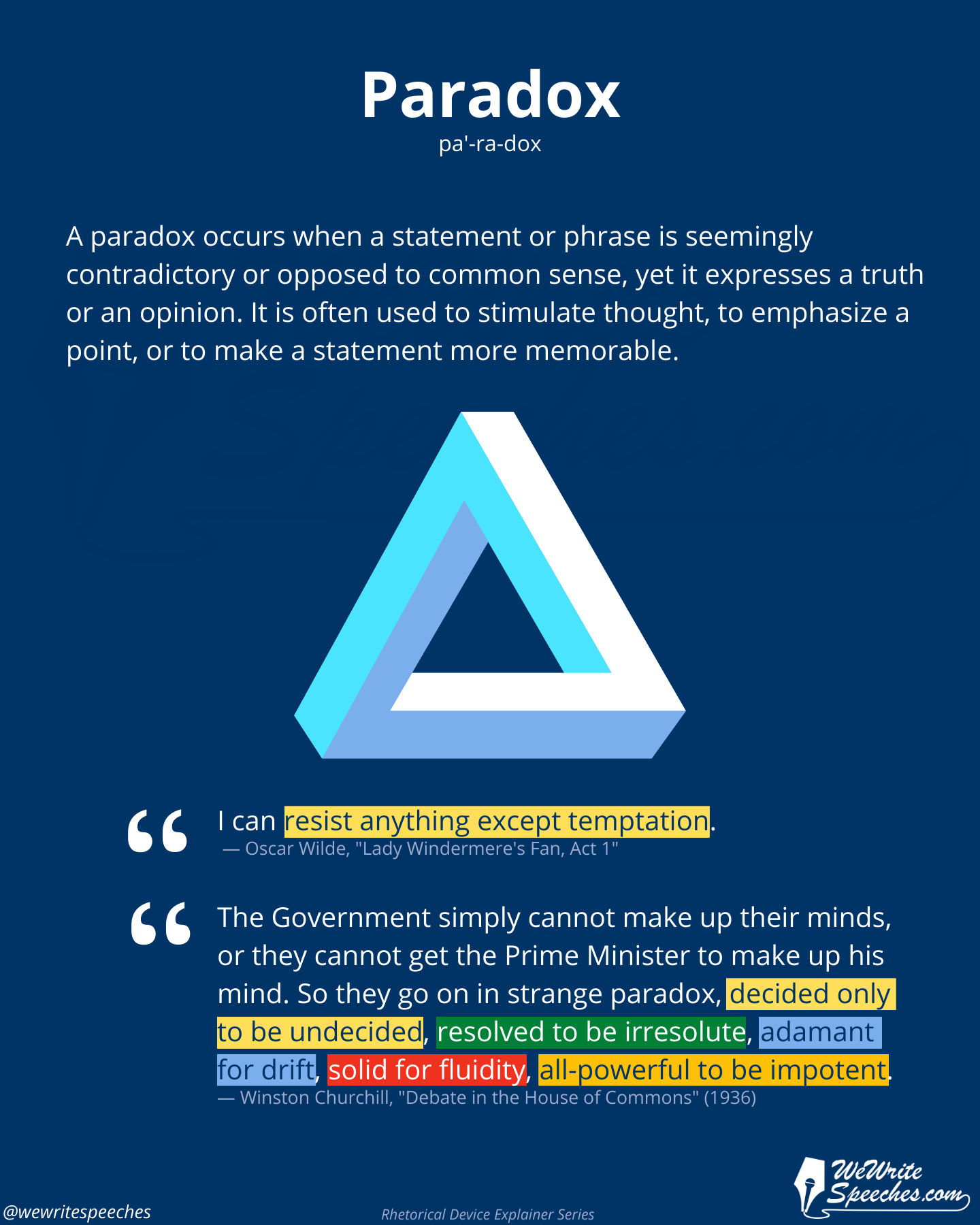Rhetorical Device: Paradox
A logical paradox is a statement that is so self-contradictory that it cannot be either true or false. For example "Nothing I say is true". A literary paradox (the type that is of most interest in public speaking), occurs when a statement or phrase is seemingly contradictory or opposed to common sense, yet it expresses a deeper truth or opinion.
Paradox is closely related to oxymoron which is considered to be a condensed variant of paradox. Paradox is also sometimes confused with antithesis which also involves juxtaposing contrasting ideas, however with antithesis, those ideas are not contradictory. Furthermore antithesis usually involves parallelism whereas paradox does not.
Paradox is often used to stimulate thought, to emphasize a point, or to make a statement more memorable.
Examples
I can resist anything except temptation. Oscar Wilde, "Lady Windermere's Fan, Act 1"
Anyone can see what the position is. The Government simply cannot make up their minds, or they cannot get the Prime Minister to make up his mind. So they go on in strange paradox, decided only to be undecided, resolved to be irresolute, adamant for drift, solid for fluidity, all-powerful to be impotent. So we go on preparing more months and years—precious perhaps to the greatness of Britain—for the locusts to eat.Winston Churchill, "Debate in the House of Commons" (12 November 1936)

We cannot stop the virus but working together we can slow it in its tracks and push it back. We all need to take steps to reduce close human contact. That's how the virus is spread -- not just at public gatherings or in public places but also in our own homes, places of leisure, and places of work. Large public gatherings are cancelled. All pubs and bars are shut. And we've asked people to curtail or cancel social gatherings like parties, weddings and other celebrations. In short, we're asking people to come together as a nation by staying apart from each other,Leo Varadkar (Irish Taoiseach), "St. Patrick's Day Address on the COVID-19 Pandemic" (17 March 2020)
This is the paradox that defines our world today. A quarter century after the end of the Cold War, the world is by many measures less violent and more prosperous than ever before, and yet our societies are filled with uncertainty, and unease, and strife. Despite enormous progress, as people lose trust in institutions, governing becomes more difficult and tensions between nations become more quick to surface.Barack Obama, "Final Address to the United Nations General Assembly" (20 September 2016)
